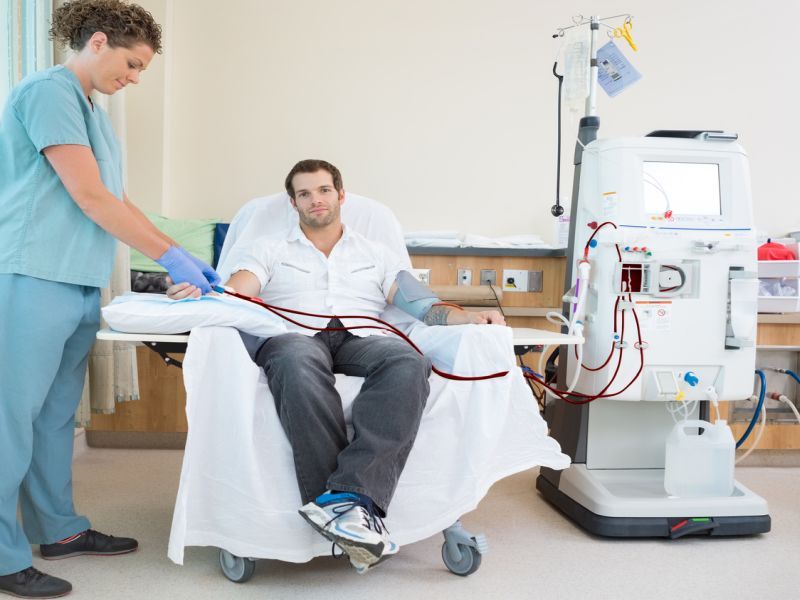
A single dose of a COVID-19 vaccine isn’t enough to develop adequate antibodies in kidney dialysis patients, Canadian researchers report.
“We advise that the second dose of the [Pfizer] vaccine be administered to patients receiving hemodialysis at the recommended 3-week time interval and that rigorous SARS-CoV-2 infection prevention and control measures be continued in hemodialysis units until vaccine efficacy is known,” said researcher Dr. Rita Suri, a kidney specialist at the Research Institute of McGill University Health Center in Montreal.
Dialysis patients are especially vulnerable to COVID as they must visit a treatment center three times a week. Among these patients, between 20% and 30% of cases are fatal — 10 times higher than in the general population.
The study included 154 dialysis patients, 40 healthy volunteers and plasma from 16 dialysis patients who survived COVID.
After one dose of the Pfizer vaccine, antibodies could not be detected in 57% of dialysis patients, researchers found. Of those, four developed COVID after vaccination.
“Patients receiving hemodialysis who did not respond at 4 weeks remained non-responders at eight weeks, which is an argument against the possibility of a delayed response in these individuals,” the authors wrote.
Older patients and those on immunosuppressant drugs had even lower rates of producing antibodies, according to the study. In addition, younger patients who were not on the drugs had a significantly lower rate of antibody production than the healthy control group, researchers wrote.
How well dialysis patients respond to the second dose of vaccine is under study.
The findings were published May 12 in the Canadian Medical Association Journal.
More information
For more on COVID-19 vaccines, head to the U.S. Centers for Disease Control and Prevention.
SOURCE: Canadian Medical Association Journal, news release, May 12, 2021
Source: HealthDay

Leave a Reply